News
-
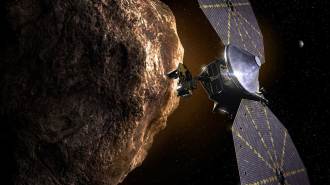 Space
Space5 cool things to know about NASA’s Lucy mission to the Trojan asteroids
NASA’s Lucy is the first spacecraft to head to the two giant clumps of space rocks that tag along in Jupiter’s orbit.
-
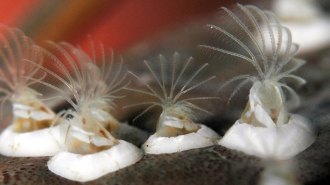 Animals
AnimalsBarnacles are famed for not budging. But one species roams its sea turtle hosts
Once settled and glued to the substrate, adult barnacles stay put. But turtle barnacles upend this trend, sliding slowly across their reptilian rides.
By Jake Buehler -
 Earth
EarthEarth is reflecting less light. It’s not clear if that’s a trend
A decrease in Earth’s reflectance shows our planet is absorbing more solar radiation, but it’s not clear if the trend will last.
By Sid Perkins -
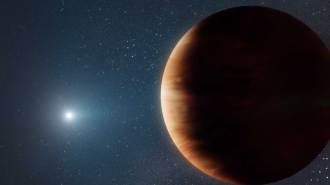 Astronomy
AstronomyA Jupiter-like planet orbiting a white dwarf hints at our solar system’s future
A new planet is the first ever discovered that is orbiting a white dwarf and resembles Jupiter in both its mass and its distance from its star.
By Ken Croswell -
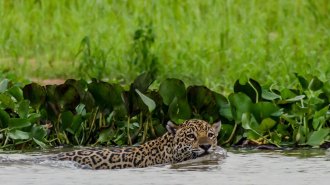 Animals
AnimalsHuge numbers of fish-eating jaguars prowl Brazil’s wetlands
Jaguars in the northern Pantanal ecosystem primarily feed on fish and caiman, living at densities previously unknown for the species.
By Jake Buehler -
 Psychology
PsychologyNostalgia may have bona fide benefits in hard times, like the pandemic
Once described as a disease, nostalgia’s reputation is much improved. Researchers hope to develop mental health therapies that trigger these memories.
By Sujata Gupta -
 Astronomy
AstronomyThe fastest-spinning white dwarf ever seen rotates once every 25 seconds
A white dwarf star that spins every 25 seconds owes its record-breaking rotation rate to a companion star dumping gas onto it.
By Ken Croswell -
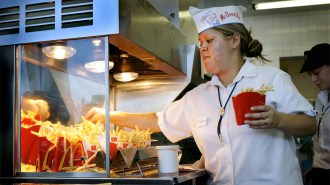 Science & Society
Science & SocietyMethods of getting results from real-world experiments win 2021 economics Nobel
David Card, Joshua Angrist and Guido Imbens share the Nobel Memorial Prize in Economic Sciences for developing a science of naturally occurring social studies.
By Bruce Bower -
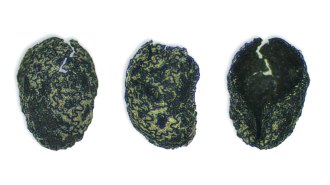 Archaeology
ArchaeologyThe earliest evidence of tobacco use dates to over 12,000 years ago
Burned seeds at an archaeological site in Utah hint at tobacco’s popularity long before it was domesticated.
By Bruce Bower -
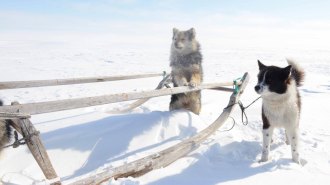 Archaeology
ArchaeologyDog DNA reveals ancient trade network connecting the Arctic to the outside world
People in Siberia were exchanging canines and probably other goods as early as 7,000 years ago with cultures as far off as Europe and the Near East.
By Freda Kreier -
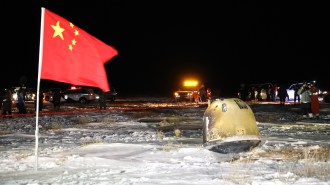 Astronomy
AstronomyChina’s lunar rock samples show lava flowed on the moon 2 billion years ago
The first lunar rocks returned to Earth in more than 40 years show that the moon was volcanically active later than scientists thought.
By Freda Kreier -
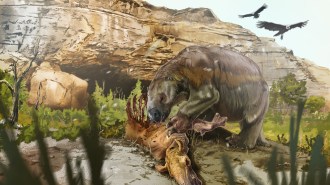 Animals
AnimalsGiant ground sloths may have been meat-eating scavengers
Contrary to previous assumptions, at least one ancient giant ground sloth was a meat eater.